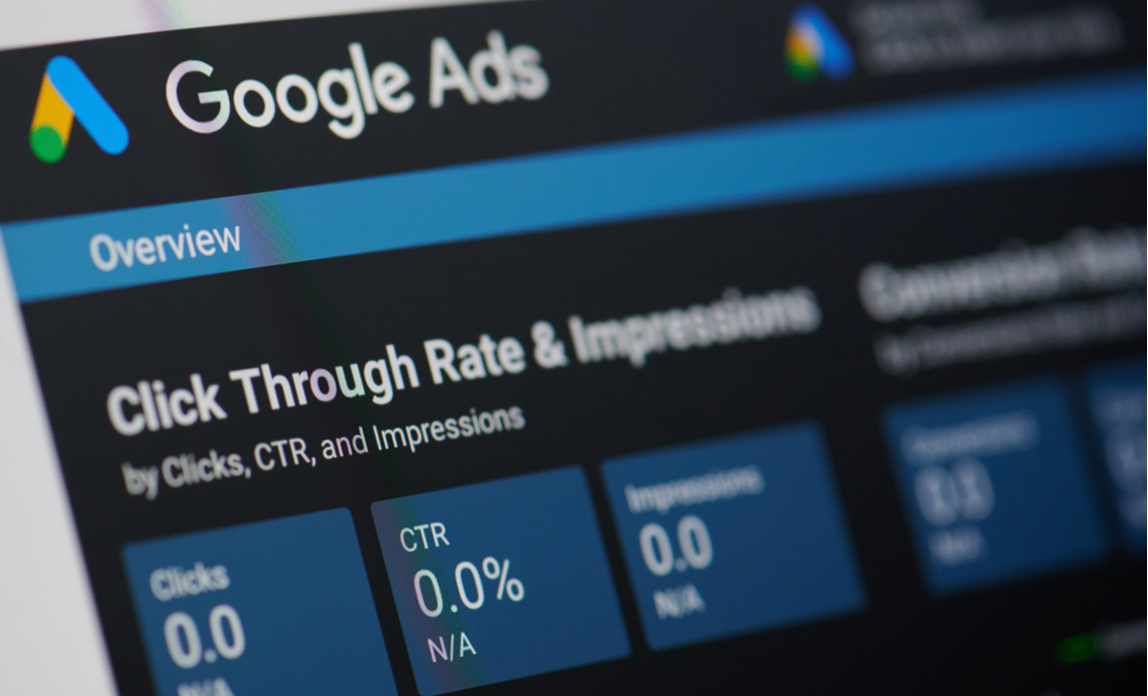Overview of Search Engine Marketing

Search Engine Marketing (SEM) is a comprehensive strategy aiming to increase a website’s visibility on search engine results pages (SERPs).
I recognize SEM as a crucial digital marketing approach. It encompasses both paid and organic tactics to achieve visibility.
Paid SEM, commonly known as Pay-Per-Click (PPC), involves bidding on keywords that I consider relevant to my target audience. When someone enters these keywords into a search engine, my ad has the potential to appear beside the search results.
The most distinctive aspect of paid SEM is that I incur a cost only when a user clicks on my ad.
Organic SEM, on the other hand, is primarily concerned with improving the ranking and visibility of my website without direct payment, through Search Engine Optimization (SEO).
This method hinges on understanding search engine algorithms and optimizing different elements of my website, including content, meta tags, and link building, to boost its rankings and drive traffic.
Here’s a bulleted breakdown of key SEM components:
- Keyword Research: Identifying optimal keywords.
- SEO: Technical website optimization.
- Content Marketing: Leveraging valuable content for SEO.
- PPC Campaigns: Running targeted advertisements.
Courses in SEM can range from comprehensive digital marketing programs to specialized classes on SEO or Google Ads.
I choose from training that fits my skill level and professional requirements. I learn from industry leaders or through accredited programs to ensure I’m up to date with current best practices.
Foundations of SEM
In my exploration of digital marketing, I’ve found that understanding the fundamentals of Search Engine Marketing (SEM) is crucial for leveraging online platforms to their full advantage, focusing on increased visibility in search engine results.
Understanding SEM and SEO
Search Engine Marketing (SEM) and Search Engine Optimization (SEO) are two sides of the same coin. SEM encompasses paid strategies to increase search visibility, whereas SEO refers to organic methods. Together, they form a synergistic approach, enabling me to capture a broader audience online.
A professional SEM course can equip me with the necessary skills to conduct successful SEM campaigns.
These skills include understanding how SEO works in tandem with paid search strategies to enhance campaign performance and attract more traffic to websites.
Keyword Research Fundamentals
The success of my SEM campaigns vastly depends on my dexterity in keyword research.
Identifying the right keywords is essential for both SEO and Pay-Per-Click (PPC) advertising, as it helps me understand what my target audience is searching for.
To optimize my campaigns, a thorough understanding of keyword research fundamentals is imperative.
It involves analyzing search volume, understanding keyword intent, and identifying long-tail keywords that can drive relevant traffic and lead to higher conversion rates.
Search Engine Algorithms
A keen insight into search engine algorithms is indispensable for any SEM strategy.
Google’s search algorithm, for instance, uses over 200 factors to rank websites, including keywords, site speed, and mobile-friendliness.
Attaining a comprehensive knowledge of search engine algorithms supports me in developing optimized content and ads that align with the intricacies of how search engines rank pages.
This insight ensures that my SEM efforts are effective and yield a substantial return on investment.
SEM Strategy Development
Developing an SEM strategy requires a clear understanding of where you want to go and who you’re speaking to. Without these foundational elements, SEM campaigns cannot reach their full potential.
Setting Campaign Goals
Firstly, I establish concrete, measurable goals. My objectives range from increasing website traffic, generating more leads, to boosting online sales.
Each goal I set is specific, measurable, achievable, relevant, and time-bound (SMART).
For instance, I might aim to increase my website’s organic traffic by 30% within the next quarter using targeted AdWords campaigns.
Target Audience Identification
Next, I focus on identifying my target audience. This involves a deep dive into customer demographics, interests, and behaviors.
I leverage tools such as Google Analytics to gather data on who my audience is and what they want.
Understanding my audience’s search intent is critical, as it allows me to align my SEM tactics with the users’ needs, leading to higher conversion rates.
Pay-Per-Click Advertising

In my exploration of SEM, Pay-Per-Click (PPC) advertising stands out as a crucial component. It’s not just about placing ads, but creating ones that effectively turn clicks into engagements and ultimately, conversions.
Creating Effective Ads
Crafting ads that resonate with the target audience is paramount. Headlines must be compelling, and descriptions should address the users’ queries or needs.
I’ve observed that including relevant keywords and a clear call-to-action (CTA) increases the chances of ad engagement.
Using Google Ads
Google Ads is a robust platform that I use to run PPC campaigns. It offers features like keyword planner and conversion tracking, essential for tailoring campaigns.
I focus on selecting relevant keywords and refining target audiences to ensure the ads reach potential customers.
Bidding Strategies
Effective bidding strategies are at the heart of successful PPC advertising.
I regularly analyze the average Cost-Per-Click (CPC) for my targeted keywords and adjust bids accordingly to optimize the budget while striving for top ad placement.
It’s a balance between spending and visibility that I aim to perfect.
SEO for SEM

In integrating SEO with SEM strategies, I focus on enhancing both organic and paid search results. This synergy improves overall search engine visibility.
On-Page Optimization
On-page optimization is the cornerstone of SEO for SEM.
I ensure that content is relevant and keywords are strategically placed to align with user search intent. Title tags, meta descriptions, and header tags are meticulously crafted to drive both click-through rates in SEM campaigns and organic search rankings.
Off-Page Optimization
Off-page optimization goes hand in hand with on-page efforts to bolster SEM.
I leverage high-quality backlinks from reputable sites to increase domain authority. Social media signals and guest blogging also play a role in reinforcing the credibility and reach of paid search ads.
Technical SEO
Technical SEO is critical for a seamless SEM operation.
I ensure that the website is fully optimized for speed with compressed images and minified code.
Moreover, search engine crawlers must efficiently navigate through a well-structured sitemap, enhancing indexing and complementing SEM endeavors by ensuring ads appear for the right queries.
Analytics and Measurement
In my experience, grasping the fundamentals of analytics and understanding how to track and measure online campaigns are crucial for effective search engine marketing.
Introduction to Analytics
Analytics provide me with deep insights into user behavior, enabling informed decisions to boost both the performance and return on investment of digital marketing campaigns.
Courses like Marketing Analytics Course – Start Learning Today are designed to equip students like myself with the necessary skills to interpret and leverage data from various digital channels.
Tracking and Measuring Campaigns
For tracking and measuring campaigns, I rely on specific metrics to evaluate success.
Click-through rates, conversion rates, and cost-per-click are just a few of these key metrics.
Educational platforms offer courses such as Assess for Success: Marketing Analytics and Measurement to comprehend the nuances of campaign performance assessment.
By mastering these skills, I can directly link campaign strategies to tangible outcomes, optimizing marketing efforts for better results.
Landing Page Optimization
When I design a landing page, my goal is always to increase conversions by making the page as engaging and user-friendly as possible. To optimize a landing page effectively, I focus on several key elements.
Structure and Layout:
- Above the fold content: Must be clear and compelling; this is the first section of the page a visitor sees without scrolling.
- Navigation: Should be straightforward, guiding visitors to take action without confusion.
Content and Visuals:
- I ensure that headlines are crisp, informative, and attention-grabbing.
- Visuals support the messaging and are high quality, relevant, and not distracting.
Call-to-Action (CTA):
- CTAs are bold and commanding without being too aggressive.
- I place them strategically on the page to lead the user towards a decision smoothly.
Speed and Mobile Optimization:
- Landing pages need to load quickly; even a few seconds delay can reduce conversions.
- A mobile-responsive design is non-negotiable since a significant portion of traffic comes from mobile devices.
Testing and Analytics:
- I always utilize A/B testing to compare different versions for performance.
- Monitoring with analytics tools gives me insight into user behavior and conversion paths.
If you’re interested in learning how to craft high-converting landing pages, the course Learn Landing Page Optimization on Udemy covers strategies and tips from marketing experts to improve your website’s profitability.
Additionally, for those starting out, Coursera offers courses to Attract and Engage Customers with Digital Marketing, which include landing page optimization within a broader marketing context.
Conversion Rate Optimization
When it comes to Search Engine Marketing (SEM), mastering Conversion Rate Optimization (CRO) is key for achieving better performance and maximizing returns from your ads.
Through CRO, I focus on understanding user behavior and tweaking my website to encourage more of my visitors to take the desired action. This could be making a purchase, signing up for a newsletter, or downloading a resource.
I pay close attention to the layout, content, and calls-to-action on my pages to improve the user experience and remove any obstacles to conversion.
Here’s a breakdown of what I consider when optimizing for conversion rates:
- A/B Testing: I regularly test different page elements to determine which variation leads to higher conversion rates. This could include testing different headlines, color schemes, or button placement to see what resonates with my users.
- User Feedback: Whether through direct user surveys or analysis of user interaction with my site via heatmaps, gathering feedback is critical. It allows me to make informed changes that reflect users’ actual preferences and difficulties.
- Analytics: By analyzing data on how users navigate my site and where they drop off, I can identify and focus on problematic areas. Tools like Google Analytics provide me with insight into user behavior and conversion tracking.
Efforts to increase conversion rates don’t just improve the efficacy of my SEM campaigns; they can lead to a better understanding of my target audience. Several comprehensive SEM courses include modules on CRO, such as those offered by Udemy and LinkedIn Learning.
SEM Campaign Management
In managing SEM campaigns, the key is to ensure cost-efficiency while maximizing the return on investment. By focusing on specific metrics and using analytical insights, I optimize the performance of each campaign.
Budget Management
Budget Monitoring: I keep a close eye on daily spending to ensure that I stay within the allocated budget while adjusting bids to maximize ad placement and performance.
Cost Adjustments: By analyzing keyword performance data, I make informed decisions on bid adjustments. This involves shifting funds to high-performing keywords and reducing spend on those that do not meet ROI thresholds.
Campaign Analysis
Performance Metrics: I track a variety of KPIs such as click-through rates, conversion rates, and quality scores, ensuring a thorough understanding of campaign effectiveness.
Actionable Insights: The data collected provides me with actionable insights, allowing me to fine-tune ad copy, landing pages, and overall strategy for improved campaign results.
Legal and Ethical Considerations in SEM
In the realm of Search Engine Marketing (SEM), it’s crucial to operate within ethical and legal boundaries. I follow search engine rules and guidelines rigorously to avoid penalties. SEM encompasses various techniques including Pay-Per-Click advertising and Search Engine Optimization (SEO), each having its own ethical code and legal framework.
Ethical Practices in SEM:
- Honest Advertising: I ensure that all SEM ads are truthful and not misleading to users. Misrepresentation undermines trust and can lead to legal consequences.
- Transparent Keyword Usage: I focus on using relevant keywords without resorting to ‘keyword stuffing’, a practice that detracts from user experience and violates search engine guidelines.
Legal Aspects:
- Compliance with Regulations: I stay up-to-date on laws like the General Data Protection Regulation (GDPR), particularly in how they relate to data collection and privacy.
- Avoiding Black Hat Techniques: These methods may give short-term gains but can lead to punitive actions from search engines. My approach is focused on long-term sustainability and credibility.
Emerging Trends in Search Engine Marketing
In the dynamic world of search engine marketing (SEM), I’ve observed a shift toward integrating more video content in campaigns. The use of video can be a compelling way to engage and capture the interest of potential customers.
According to a recent analysis, a substantial number of companies have embraced video marketing over the last year to enhance their SEM efforts.
Another noticeable trend is the alignment of content with search intent. I understand the importance of creating content that not only ranks well but also provides what users are looking for.
This practice involves deeply understanding user quirks and tailoring content to meet their specific needs during their search journey.
I’ve also seen a burgeoning focus on mobile optimization, considering the significant volume of searches performed on mobile devices. Ensuring that SEM strategies cater to mobile users is now more critical than ever.
Lastly, technical SEO remains a crucial part of SEM, with a spotlight on speed and user experience improvements. Here’s how I keep track of the key areas in technical SEO:
- Page Speed: Ensuring quick load times for better user experience.
- Responsive Design: Creating a seamless experience across all devices.
- Structured Data: Enhancing visibility in search engine results through rich snippets.
Frequently Asked Questions
In this section, I’ll answer some of the most common questions about online search engine marketing courses, their certification processes, and the platforms offering them. I’ll provide insights into beginner-friendly courses, free certifications, and the key skills covered in these courses.
What are the top-rated online courses for learning search engine marketing?
The Best Search Engine Marketing Courses Online with Certificates offer comprehensive training, covering a variety of necessary skills such as SEO and advertising strategies, often highly rated by participants.
How can I become certified in search engine marketing through online courses?
Certification can typically be obtained by enrolling in and completing online courses from reputable platforms. Courses like the Introduction to Google SEO on Coursera provide a structured learning path towards certification.
Which online platforms offer the best search engine marketing courses for beginners?
For beginners, platforms like Coursera are ideal as they offer beginner-level courses, such as Best Internet Marketing Courses Online with Certificates, which usually start with the fundamentals of internet marketing and include search engine optimization.
Are there any comprehensive digital marketing courses that include search engine marketing?
Yes, comprehensive bootcamps and courses that include search engine marketing are available, such as those listed by Forbes Advisor on their Best Digital Marketing Bootcamps Of 2024 page.
Can I find search engine marketing courses online that offer free certification?
Although many online courses require payment for certification, there are some that offer free certification options upon completion of the course material, particularly during promotional periods or through special programs.
What skills are essential to master in a search engine marketing course?
A search engine marketing course should cover a variety of skills. These include SEO, persona research, marketing management, and advertising.
Further specialization might include PPC, content marketing, and analytics to track campaign success.
